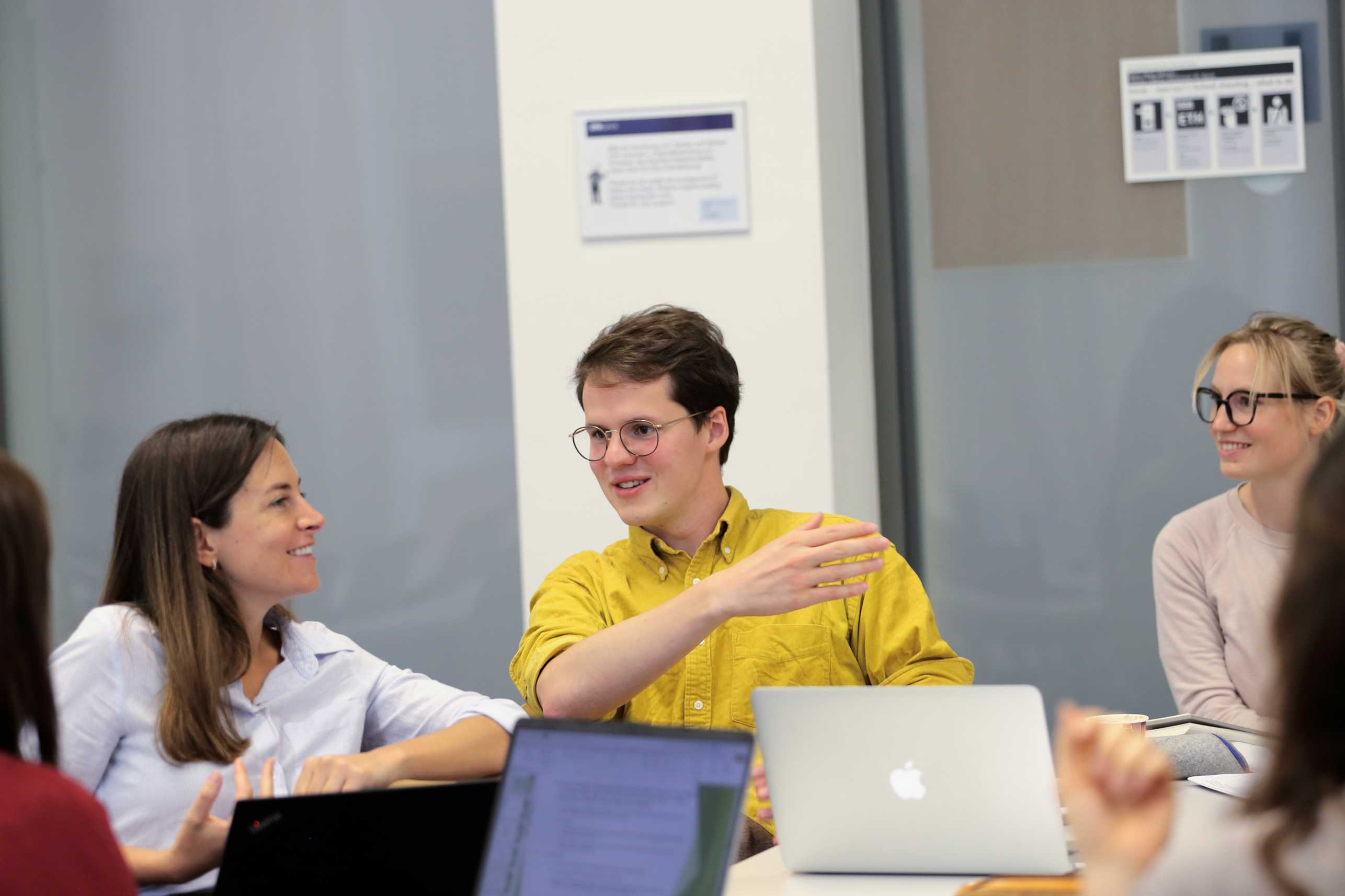Continuing Education
CAS ETH in Applied Technology in Energy

Reducing carbon emissions to net zero by 2050 will require a profound shift of the energy system, in particular the expanding renewable energies and electrifying the building and transport sector, both of which will bring new challenges.
ETH Zurich’s CAS programme in Applied Technology in Energy (CAS ETH ATE) provides professionals with a deep understanding of the rapidly evolving energy system. Course participants will gain a better understanding of the ongoing energy transition, enabling them to help shape the energy future of their company and industry.
Participants learn how we generate, store, distribute and consume energy currently, and how these processes are evolving from scientific and technological perspectives. A strong emphasis is given to technology applications that impact multiple industries beyond the energy sector. For example, in some industries the energy transition has significant impacts on product design and core operations. To explore these business impacts, the CAS uses case studies and examples from these industries, including manufacturing, electronics, automotive, and construction and management of buildings.

“Industry needs to make strategic investments decisions with far reaching consequences on our energy future, today. This means also enabling managers to understand and apply relevant technologies.”Dr. Christian Schaffner, Executive Director of the ETH Energy Science Center and Programme Director of the CAS ETH ATE Programme
Practical Information
The CAS ATE is designed specifically for professionals with limited or single science backgrounds (including degrees in Economics, Business, Law, etc.) who need a better understanding of the science and technology impacting the future of the energy industry in order to advance their careers.
Participants complete 4 modules over 14 weeks from April to July. Classes are generally conducted in either a block format or blended learning format to minimize time away from work. Classes are held at ETH Zentrum campus every other week for one full day and one half day (typically Friday all day and Saturday morning), and the programme is thus well suited as a part-time study programme.
Total workload is approximately 300 hours (~21 hours/week) and successful graduates earn a total of 12 ECTS credits.
Study language is 100% English.
Start: Spring Semester
Location: ETH Zurich, Main Campus
Application period: 30.11.2025 – 01.03.2026
Programme fee: CHF 8,500
Programme structure: 4 modules over 14 weeks
Class period: April to July
Class times: typically Friday all day and Saturday morning
Total workload: ~300 hours (~21 hours/week)
CAS ATE Programme Schedule: Download FS 2026 (PDF, 46 KB)
Programme Director: Dr Christian Schaffner, Energy Science Center (ESC)
Deputy Programme Director: Prof. Gabriela Hug, Power Systems Laboratory (D-ITET)
Programme Administration: Karin Sonderegger Zaky (D-ITET)
Join one of our next online info sessions and get first hand information about the Certificate of Advanced Studies in Applied Technology in Energy (CAS ATE).
There are currently no more online info sessions planned.
Application period: 30.11.2025 – 01.03.2026
Requirements: Recognised by ETH Zurich at Master's level or equivalent educational attainment (Rector's directive on admission) as well as relevant management experience after graduation.
Language requirements: English B2
Application fee: CHF 50 for persons with a Swiss university degree, CHF 150 for persons with another university degree (non-refundable, credit card payment only)
Cancellation fee:
- Within 30 days of enrolment date: free of charge
- From 30 days after enrolment date: CHF 2,000
- After programme start date: CHF 8,500
Application documents:
- Diploma and degree certificate from the highest or most relevant degree
- Passport or identity card
- Download declaration of consent (PDF, 94 KB)
Additional application documents:
- Work references
- CV
Recommended procedure for a successful application
Questions regarding the application: ETH Zürich, School for Continuing Education, HG E 17–18.5, Rämistrasse 101, 8092 Zürich, Tel. externe Seite +41 44 632 56 59,
We look forward to your application to the CAS ETH in Applied Technology in Energy for the Spring Semester 2026.
Insights
Course Modules
Dr. Christian Schaffner
The module "Energy Fundamentals" provides an introduction to the fundamental science and the underlying technology used throughout the rest of the CAS.
Participants will learn how today’s energy system works, including the underlying scientific principles of energy technologies – generation, storage, distribution – and the regulatory and economic frameworks that integrate these technologies into our society. Special attention is paid to understanding renewable electricity generation and why these rapidly evolving technologies are driving change in multiple industries.
To start, there is an online review module, Energy Fundamentals, which acts as a prerequisite for the entire CAS ATE. The review module introduces the mathematical and electrical basics needed to be successful in the CAS. We advise participants to use the "Assessment Quiz" to identify their knowledge gaps and to close them prior to the course, if needed. The rest of the Energy Fundamentals module is also organised in a self-learning online module with weekly contact hours to discuss questions with teaching assistants.
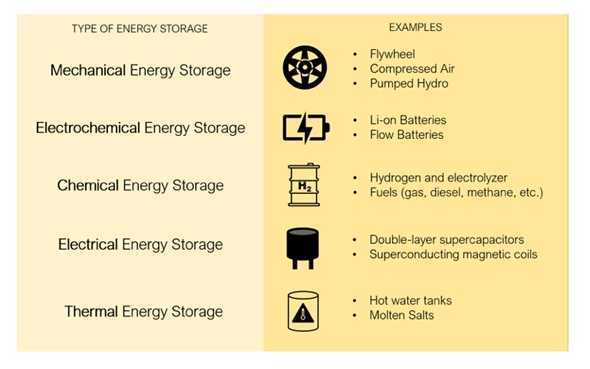
Ass. Prof. Dr. Christian Prehal & Prof. Dr. Vanessa Wood
This course module "Energy Storage" takes a deeper look at the most important technologies for electrical energy storage in industry, with an emphasis on batteries. Participants are introduced to the energy storage technologies in use in industry as well as technology- and market-driven opportunities for change and new applications. The design, manufacture, operation, and usage scenarios of lithium-ion batteries are explained in detail. Future improvements in battery energy storage is explored in terms of both likely progress and critical barriers.
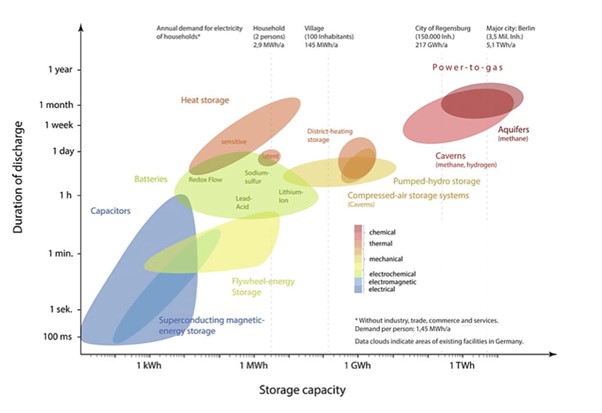
Prof. Dr. Christian Franck & Prof. Dr. Gabriela Hug
For decades, electric power grid systems have remained essentially unchanged. Now, they are undergoing significant changes driven by the energy transition. This course module helps participants understand the fundamental setup and workings of the electric power grid.
Participants learn in the module "Electric Power Grid Systems" about the technical operation and management of traditional power grid systems, including the fundamental equipment and mechanisms responsible for transforming and transporting electricity to end users and the concept of AC power. We will discuss typical grid design and management and the underlying physical principles that drive design and management decisions. Then, we will turn to future grids and the opportunities and challenges that arise from distributed generation, microgrids, demand response, and virtual power plants. We will explore future grids both from the operator’s and end-user’s perspectives.
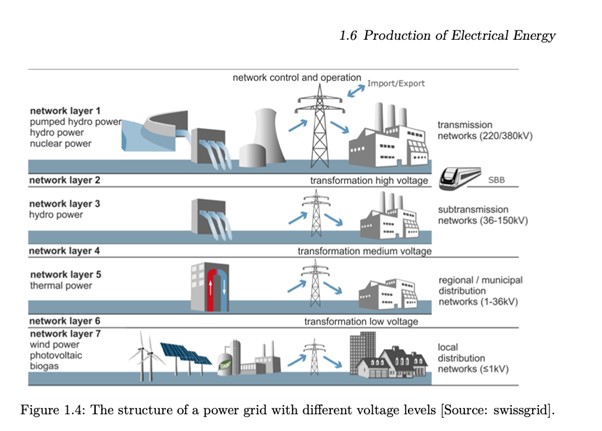
Dr. Christian Schaffner
The focus of this course module "Electrification and Practical Applications" is on understanding the practical implications of the energy transition taking place in industry, including electrification technology and its practical application in multiple industries.
This course takes a case study approach to look at how electrification is currently impacting products and technology use in manufacturing, electronics, automotive, building construction, and facility management. The course participants work on actual cases provided by industry partners. We discuss real-time issues in policy and regulation, as well as the technical and practical challenges of implementation. Participants interact with master’s students from ETH Zurich working in the domain and engage with industry experts.
Master of Advanced Studies (MAS) in Applied Technology
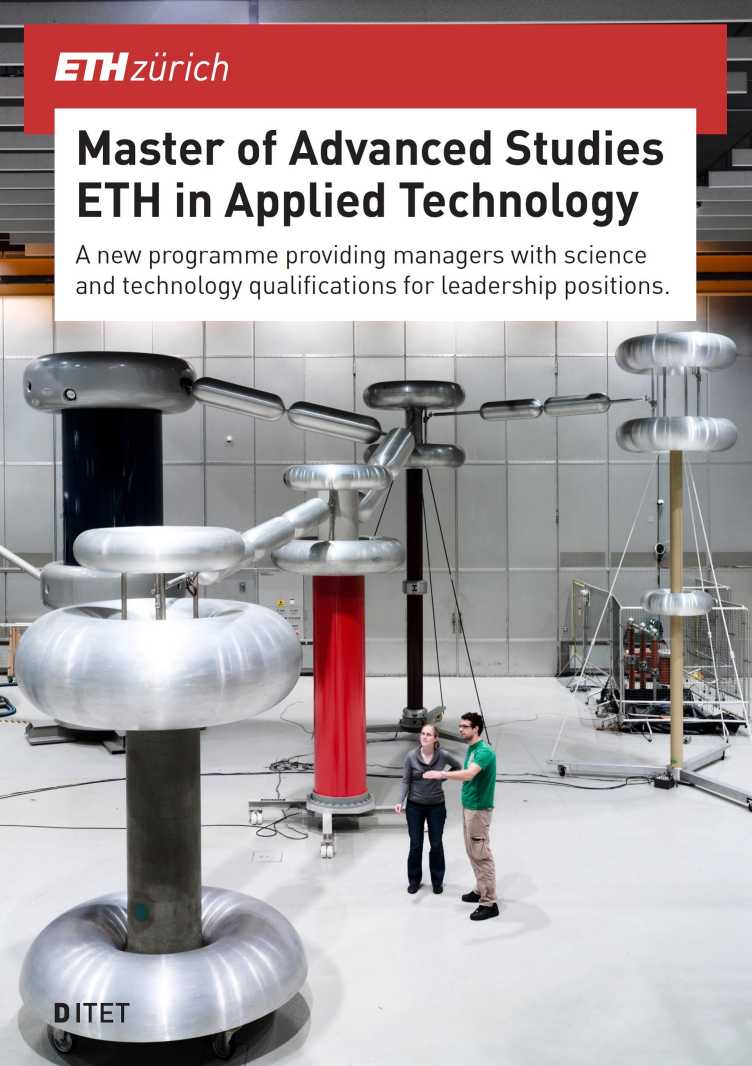
The Certificate in Advanced Studies (CAS) in Applied Technology in Energy (CAS ATE) is part of the Master of Advanced Studies (MAS) in Applied Technology. This MAS covers the most important areas for engineering and technology-based industries, including information technology, manufacturing and corporate innovation. Participants can choose one technology Certificate of Advanced Studies (CAS) as an elective, including the CAS Applied Technology in Energy.
Further information is available on the MAS in Applied Technology website or more specifically on the CAS Applied Technology in Energy.
